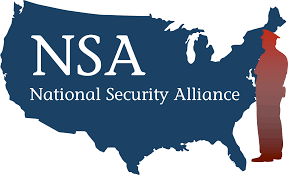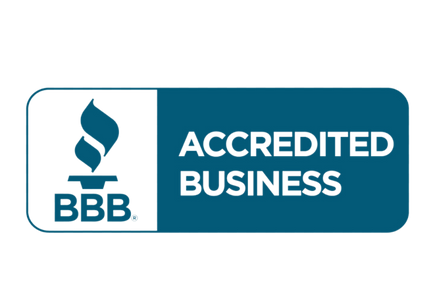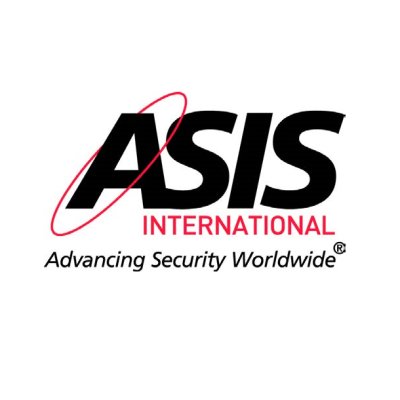
Elite guard training drives retention and reliability by ensuring rigorous hiring, continuous training, and oversight—building trust and client confidence while reducing risk.
Proven Training Strategies Security Guard Firms Can Use to Retain Guards and Cut Risk
Randi Sherman
4- Minute Read
As a prelude to today’s topic, we’d like to share details of a case that shook the security industry.
A recent high-profile case involving a former Miami Heat security officer exposed the consequences of lapses in security guard vetting, oversight, and access control. Over a work tenure that spanned several years, an officer allegedly stole more than 400 pieces of valuable team memorabilia from a secure storage room, selling over 100 items for roughly $2 million. One of the stolen items, LeBron James’ Game 7 Finals jersey, was later resold for $3.7 million.
Nearly 300 other stolen pieces were recovered during a raid at this guard’s home, but the reputational and financial damage to the firm? There was no coming back from it.
This case has become a cautionary tale for security firms, underscoring the need for elite-level guard training, robust hiring processes, airtight contracts, and comprehensive insurance.
For security firm owners, the message comes in loud and clear: retaining trustworthy, reliable personnel and safeguarding client property begins with meticulous preparation, strict oversight, and proactive risk management.
How Security Guard Training and Policies Instill Confidence in Your Clients
Clients hire security firms to ensure their people and property are safe. They want to know that the firm takes their needs seriously. A commitment to elite guard training, stringent policies, modern technology, and a reputation for reliability and consistency provide clients with the confidence they need to seal the deal.
Once the contract is in place, firms and guards must uphold the principles to ensure retention. Client acquisition costs as much as five times more than retaining existing clients—plus, happy clients will refer you to their colleagues, extending the value of your training policies even further. Even a 5% increase in retention can increase profitability up to 95% (source), underscoring the need to focus on retention for sustainable growth.
We know that guard training can improve client relationships, reduce liability, and boost employee retention, but let’s throw down a few additional strategies to work into your policy manual.
1. Rigorous Hiring and Background Checks
Your people are your foundation. Even the most advanced systems and protocols are meaningless if your people are unvetted, unqualified, or inadequately screened.
Key steps for thorough vetting include:
· Criminal background checks covering federal, state, and local jurisdictions for a history of theft, fraud, or violent offenses.
· Financial history review. Unresolved debt, bankruptcies, or sudden financial stress might pose a higher risk of theft or dishonesty.
· Employment verification. Confirm all prior employment; ask about unexplained gaps or frequent job changes.
· Expanded reference checks. Go beyond the references provided. Speak with former supervisors and colleagues, if possible, to identify patterns of misconduct or trust issues.
All candidates should be vetted using a consistent process—no exceptions! Even candidates who are former law enforcement officers should be investigated. Titles and past roles should never be used to gauge character. Trustworthiness must be proven, not assumed.
2. Access Control and Monitoring
Controlling access to sensitive areas is non-negotiable. Best practices include the following:
· Need-to-know access. Limit entry to high-value or sensitive locations strictly to personnel whose roles require it.
· Keycard tracking and audit logs. Maintain detailed records of every access attempt, both successful and denied.
· Periodic access reviews. Reassess employee access rights regularly. An employee’s role may change, and their access privileges may need to change too.
· Dual-control protocols. For high-value assets, two authorized individuals must be present for access to reduce the chance of theft.
Monitoring technology, from biometric scanners to AI-powered detection, should be integrated to flag and analyze unusual activity, such as repeated late-night access or attempts to access outside regular working hours.
3. Employee Supervision and Periodic Audits
Even the most trusted employees benefit from consistent oversight. Guard management should include regular performance evaluations and reinforcement of ethical responsibilities.
Ongoing supervision should include the following:
· Assignment reviews. Ensure a guard’s duties align with their access levels and skill set. Placing guards in environments beyond their capabilities is a recipe for trouble.
· Inventory inspections. Conduct scheduled and surprise checks of high-value inventory to deter theft and catch discrepancies early.
· Behavioral monitoring. Train guard supervisors to recognize early signs of discontent, stress, or opportunistic behavior that could evolve.
Audits are both a deterrent and a diagnostic tool. When guards know that inventory checks are frequent and unannounced, the risk of getting caught outweighs the potential reward of stealing.
4. Protective Contract Language
While loss prevention is job one, contracts can drastically reduce liability in case of an incident. Contracts spell out the firm’s and the client’s obligations in black and white, improving trust and removing ambiguity around a guard’s responsibilities.
Here are a few clauses you might want to include in your client agreements:
· Limited liability. Define the maximum financial responsibility your firm will assume for losses.
· Indemnification clauses. Require the client to hold your company harmless for specific categories of loss, except in cases of proven gross negligence.
· Client cooperation. Specify that clients must follow agreed-upon security procedures, such as providing adequate storage, working surveillance systems, and accurate inventory records.
· Property coverage obligations. Require clients to maintain their own insurance for high-value items to ensure shared responsibility for their assets.
Strong contracts protect your firm and your relationship with the client, setting clear expectations for risk assumption.
Insurance Protection: Crime and Employee Dishonesty Coverage
Even with meticulous vetting, hiring, and airtight policies, there is still risk. Insurance is an essential line of defense to protect the firm and the client.
Here are a few things to consider when obtaining coverage:
· Third-party fidelity. This policy add-on covers theft of property belonging to clients.
· Adequate coverage limits. Choose limits based on the maximum value of property your firm might handle at any time.
· Contract-driven requirements. Review contracts to ensure policy limits meet or exceed client minimums.
· Liability caps. Understand how your contractual liability aligns with your insurance limits. Gaps can leave your business exposed!
To guide your insurance policy decisions, ask yourself the following questions:
1. What is the highest-value property you could be responsible for in a single moment?
2. Could one individual steal a large volume or value of assets in a single occurrence?
3. Do you serve sectors with high theft risk, such as sports teams, jewelers, electronics distributors, or museums?
4. Are current security systems, access logs, and surveillance tools adequate to deter and detect theft?
Work with your insurer to tailor a policy that reflects the scale and nature of your client portfolio.
Elite Guard Training as the Core Solution
Ultimately, policies, contracts, and insurance are non-negotiable. However, your guards are the real gatekeepers. Guard training programs should emphasize not only technical skills but also ethics, accountability, customer service, and situational awareness.
Guard training programs should include the following elements:
· Scenario-based training. Guards must learn to respond to real-world threats, including insider threats and suspicious behavior.
· Legal and contractual awareness. Ensure your guard force understands the legal implications of negligence and the protective clauses in client agreements.
· Ethics reinforcement. Remind your guards regularly that trust is their most valuable currency.
· Technology training. Guards must be trained on current access control systems, surveillance tools, and monitoring software. Since technology advances rapidly, training should be ongoing and updated regularly.
Well-trained, well-supported, and well-monitored guards not only perform better but also tend to stay in their jobs longer, improving employee retention while reducing recruitment costs.
Trust and Training are the Foundations of Retention
The Miami Heat case is a stark reminder that the most shocking breaches can come from inside. Training, rigorous vetting, strong access control, continuous oversight, protective contracts, and tailored insurance policies are all integral pieces of a reliable security program.
Security firms that invest in these measures reduce risk and loss while building a culture of trust, professionalism, and long-term retention. In the end, the clients who hire your team aren’t just paying for bodies at the door; they’re counting on the peace of mind that comes from knowing their most valuable assets are in the hands of proven, reliable professionals.
Frequently Asked Questions About Security Guard Training and Retention
Q1: Why is elite security guard training important for client retention?
Elite training ensures guards are reliable, professional, and prepared to handle real-world risks. Security firms that invest in training reduce turnover, build trust, and keep long-term clients.
Q2: How does guard training reduce liability for security firms?
Comprehensive security training covers compliance, situational awareness, and ethics. This lowers the risk of negligence, insider theft, and liability claims—protecting both the firm and the client.
Q3: What are the best practices for retaining security guards?
Retention strategies include competitive pay, ongoing training programs, career development, and strong supervision. Well-trained guards are more loyal and provide consistent client confidence.
Q4: How can training improve a security firm’s reputation?
When guards demonstrate professionalism and reliability, clients view the firm as trustworthy. This reputation not only retains clients but also drives referrals and new business.
Q5: What role does training play in preventing insider threats?
Guard training emphasizes ethics, accountability, and monitoring systems that detect unusual behavior. This reduces the risk of internal theft or misconduct, which can damage client relationships.






